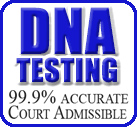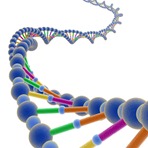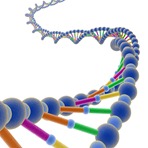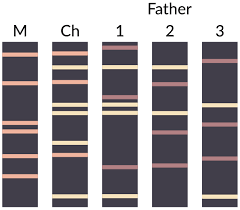Open on Evenings & Holidays! Extended And Flexible Hours!
* DNA Testing for Immigration
* Paternity Testing
* Deceased Paternity
* Forensic Testing & Much More!
Open on Evenings & Holidays! Extended And Flexible Hours!
* DNA Testing for Immigration
* Paternity Testing
* Deceased Paternity
* Forensic Testing & Much More!

AB DNA Testing Services
Phone: 718-701-0292
We offer New York’s BEST AND MOST AFFORDABLE DNA TESTING with a full range of services to verify family relationships.
We specialize in the following types of DNA tests:
• Paternity • Maternity • Grand-parenting • Sibling Relationship • Biological Relationship Studies • Twin Studies • Deceased Paternity • Forensic Testing • Child Identity Testing • Family Tree and Genealogy Testing
* EVEN LOWER PRICE THAN HOME DNA KITS.
* NO HIDDEN COSTS – Collection kits, photography, and fingerprinting all included.
* 99.9% (OR GREATER) ACCURACY.
* FINAL RESULTS ARE PRESENTED IN A NOTARIZED DOCUMENT IN A CLEAR AND CONCISE FORM.
* ALL RESULTS ARE COURT ADMISSIBLE.
* OVER 15 YEARS EXPERIENCE.
* NO REFERRALS NECESSARY!
* FAST AND PAINLESS SAMPLE COLLECTIONS, USING BUCCAL (Mouth) SWABS.
* SPANISH, PORTUGUESE, FRENCH AND CREOLE SPOKEN.
* PLEASE SEE TRANSLATIONS OF OUR SERVICES IN: SPANISH, BENGALI, URDU, CHINESE AND NEPALESE!
Located In Woodside Queens, easily reachable from all boroughs (Queens, Manhattan, Brooklyn, Bronx and Staten Island), Westchester, Nassau and Suffolk.
We can also schedule DNA tests at our network of collection sites throughout New York city.
Call us. We have found that in many cases, our personalized service can overturn your denial. We will call the passport office or immigration dept. for you and plead your case over phone verbally.
90% of time they will revoke your denial, as long as you get the required information to them quickly.
AB DNA TESTING SERVICES
AB DNA Testing Services © |
 |
718-701-0292 We are open on evenings & holidays! |
 |
Legal Paternity Test: $349
NYS compliant testing only. NO HIDDEN COSTS OR EXTRA FEES.
We do not provide prenatal DNA testing in-house. If you need prenatal testing, we can refer you to a provider we’ve worked with previously:
Prenatal DNA Testing NYC.
AB DNA Testing Services offers a broad range of DNA testing options using certified, accredited laboratories and verified collection procedures.
DNA testing for ethnicity is the testing of a person’s DNA to gain information about their ethnic background, based completely on their genes. With this type of DNA testing, you will be able to gain information on the background of your own genes and the genes of your family members.
Before we can test your DNA for ethnicity, we must obtain a DNA sample. We do this by collecting buccal cells, or cheek cells, from inside a person’s cheek using a cheek swab made of cotton. This is a painless, non-invasive method of gathering DNA samples. After we have your DNA sample, we will remove everything but the DNA itself.
Each person has a unique set of DNA. All of a person’s DNA put together is called a genome. When people are related by ethnicity, their genomes are more similar to each other than when they are not part of the same ethnic group. When we compare the genomes of multiple people, we are able to see how similar their genomes, and thus ethnicities, are.
Y-DNA testing is the testing of the Y chromosome in males to gather genetic information about that person’s paternal family line. Because females do not have a Y chromosome, they cannot take this test and will need to seek a different type of ethnic DNA testing.
The testing of your mitochondrial DNA is known as mtDNA testing. Mitochondria are the organelles inside your cells that provide the cells with energy. These organelles contain their own DNA, separate from the rest of the cell, and therefore we are able to test this DNA on its own. You inherit your mitochondrial DNA from your mother, so this DNA testing can provide information about your genetic maternal line. Both males and females inherit their mother’s mitochondrial DNA and therefore both genders are able to take this type of ethnic DNA test.
Autosomal DNA testing is the testing of all of your DNA besides your sex chromosomes. This can be done for both males and females and is usually the best option for ethnic DNA testing. With Y-DNA and mtDNA testing, you will receive information about your paternal and maternal lines, which can go very far back in history, but the rest of your family tree will be a mystery. With autosomal DNA testing, however, we can piece your complete family tree together to help you learn more about your genetic ethnicity.
If you undergo autosomal DNA testing, your results will come in the form of a percentage of ancestry. For instance, one person may have DNA ancestry that is 21% Japanese, 13% South African, and 66% Spanish.
With Y-DNA and mtDNA testing, your results will be a list of likely haplogroups. A haplogroup is an ethnic group that usually stems from a certain part of the world. For example, with mtDNA testing, your results might indicate that you are part of an L haplogroup, which indicates African ancestry. When you receive your DNA results, we will explain all of these results to you.
If you want to know more about your ethnic history, contact us today to schedule an ethnic DNA test appointment with the best DNA testing lab in NYC.
For more information, visit our main website: https://www.abdnatestingservices.com/
References:
Deceased paternity testing is the testing of DNA from a deceased person in order to confirm the paternity of that alleged father to a child, either young or grown. Deceased paternity tests are actually quite common, as many people desire to establish legal paternity even after an alleged father has passed away. These tests are most often performed to establish a child as a legal heir to any assets of the alleged father, but we can perform deceased paternity tests for other reasons as well.
When we perform a traditional paternity test, we usually collect buccal cells, or cheek cells, from inside a person’s cheek using a cheek swab made of cotton. We take samples from both the child and the alleged father to be tested.
We then use these DNA samples to compare their genomes side-by-side. A person’s genome is all of their DNA put together and is unique from anyone else’s genome. However, when people are related, their genomes are more similar to each other than when they are not related. When we compare the genomes of multiple people, we are able to see how similar the genomes are. This comparison is called DNA profiling or Genetic Fingerprinting, and is the same process used in criminal investigations to see if someone’s fingerprint or hair matches the genome of the suspect.
Using buccal cells to perform a paternity test is traditionally how we do things in our lab. However, if the alleged father is deceased, performing a paternity test becomes more complicated.
When the alleged father is deceased, we look to non-standard methods of paternity DNA testing. In the absence of living buccal cells, you can bring in other samples of DNA from a deceased person such as blood, hair, or nail clippings, if possible. This is the preferred method for deceased paternity testing.
However, we recognize that gathering these DNA samples from a deceased person will not always be possible. If you are not able to provide any such DNA samples from the deceased person, the next best option is to test the DNA of a close relative to the alleged father. The closer the relative to the alleged father, the more accurate the test results will be.
An example of a close DNA relative of the alleged father is the alleged father’s biological parents. In this case, we prefer to test both of his parents, if possible, to increase the accuracy of the paternity test. However, testing only one of his parents can still be helpful.
If for some reason we are unable to test the DNA of the alleged father’s parents- for example, they themselves are deceased- then the DNA of another close relative can be used. But keep in mind that the accuracy of the paternity test will decrease the more distant the relative is from the alleged father.

After we perform the paternity test, you will receive a percentage result. This percentage represents the probability that the child and alleged father are related. If the probability is 0% then they are not related. If they are related, the probability may be as high as 99.99%.
Traditional paternity tests are extremely accurate. But deceased paternity tests can be less accurate if we are not using the alleged father’s DNA. The more distant the relative, the less accurate the test will be. Therefore, it is best to obtain DNA samples from the deceased father if at all possible.
Contact us today to schedule a paternity test appointment with the best DNA testing lab in NYC.
AABB DNA TESTING: 718-701-0292
References
https://en.wikipedia.org/wiki/DNA_paternity_testing
https://www.verywellfamily.com/about-paternity-tests-1270746
https://dnacenter.com/blog/are-home-paternity-tests-accurate/
https://dnapaternitytestingcenters.com/paternity-testing-with-father-deceased/